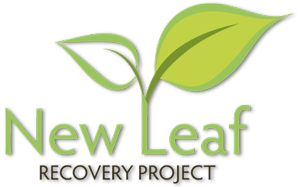Understanding the Role of Dopamine in Addiction
Addiction is a complex neurological process that is driven by the brain's reward system, specifically the neurotransmitter dopamine. Dopamine plays a crucial role in the development and maintenance of addiction, making it challenging to quit without professional help and support.
When we think about addiction, we often focus on the negative consequences of drug use: the damage it can do to our bodies, the strain it can put on our relationships, and the harm it can cause to our communities. But addiction is also a complex neurological process that is driven by the brain's reward system, specifically the neurotransmitter dopamine.

The Role of Dopamine in the Brain
Dopamine is a chemical messenger that is released in the brain in response to pleasurable experiences, such as eating a delicious meal, having sex, or achieving a goal. It is often referred to as the "feel-good" neurotransmitter, as it is responsible for feelings of pleasure, motivation, and reward. The brain's reward system is a complex network of neural pathways that respond to dopamine and other neurotransmitters to reinforce behaviours that are associated with pleasure and reward.
Dopamine and Drug Use
In the context of drug use, dopamine plays a crucial role in the development and maintenance of addiction. When drugs are ingested, they flood the brain with dopamine, causing intense feelings of euphoria and reward. This flood of dopamine is so powerful that it hijacks the brain's reward system, making drug use the top priority over other natural rewards, such as food, sex, and social interaction. This hijacking of the brain's reward system is a key factor in the development of addiction, as individuals become increasingly reliant on drugs to achieve feelings of pleasure and reward.
Tolerance and Addiction
Over time, repeated drug use causes changes in the brain's reward system, leading to a reduction in dopamine sensitivity and an increased tolerance to the drug's effects. This means that individuals need to take more and more of the drug to achieve the same level of reward, which can lead to addiction. The development of tolerance is a significant challenge for individuals trying to overcome addiction, as it makes it increasingly difficult to achieve feelings of pleasure and reward without using drugs.
The Difficulty of Overcoming Addiction
Understanding the role of dopamine in addiction is important because it helps to explain why addiction is so difficult to overcome. The brain becomes wired to prioritise drug use over other natural rewards, making it challenging to quit without professional help and support. In addition, the changes in the brain's reward system that occur as a result of addiction can persist even after an individual has stopped using drugs, making relapse a significant risk.
Treatment Approaches
However, there is hope for individuals struggling with addiction. There are several approaches to treating addiction that focus on rebalancing the brain's reward system and reducing cravings for drugs.
- Cognitive-behavioural therapy (CBT) is a type of talk therapy that focuses on changing patterns of thinking and behaviour that contribute to addiction.
- Motivational interviewing (MI) is a collaborative approach that helps individuals identify and work through ambivalence about quitting drug use.
- Medication-assisted treatment (MAT) uses medications to reduce cravings for drugs and help individuals manage withdrawal symptoms.
These approaches can be used alone or in combination to help individuals overcome addiction and maintain long-term recovery.
Turning Over a New Leaf
Dopamine plays a critical role in addiction, and understanding the complex interplay between dopamine and drug use is essential for individuals seeking to overcome addiction. By using evidence-based treatment approaches to rebalance the brain's reward system, individuals can reduce their risk of relapse and achieve lasting recovery.
Take the first step towards recovery and a healthier, more fulfilling life. Contact New Leaf Recovery today!

